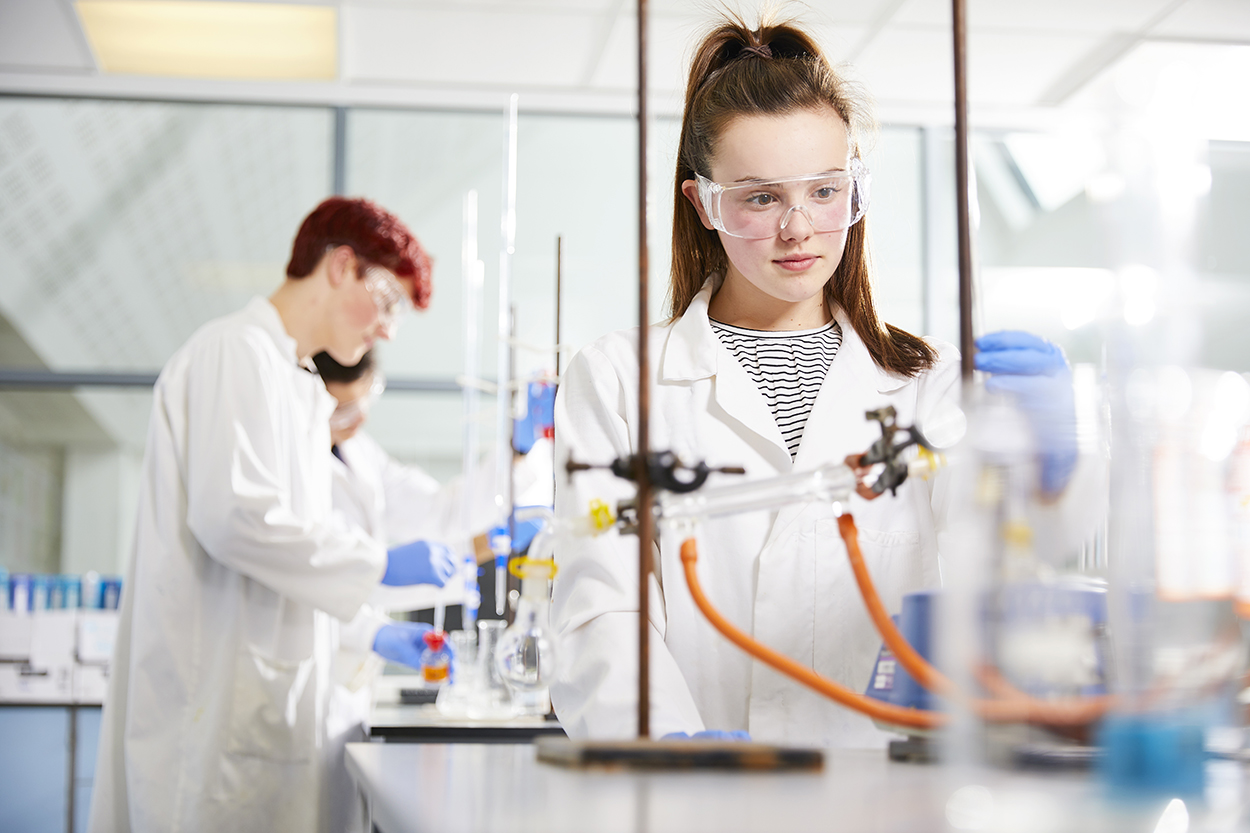
Course may be subject to change.
If you are interested in studying A Levels at New College Durham please just complete one application form and you will be able to choose your subjects once you have had your interview. You do not need to apply for each of the subjects you are interested.
This logical subject enables you to study the world in which we live and attempt to understand and interpret it. If you enjoy problem solving, handling numbers and theories and like a challenge then this subject is for you.
You will learn about linear motion; forces in action; car safety; electrical circuits; wave motion; quantum physics; circular motion; thermal physics; electrical and magnetic fields; nuclear physics; medical physics; and modelling the universe.
Much of the work is covered by practical experiments and demonstrations, which are also designed to develop your experimental and investigative skills.
Entry Criteria
You will hold five GCSEs at grade 9-4, including:
- GCSE English Language - grade 6 - GCSE Maths - grade 6
- GCSE Science - grade 6,6 (6 in Physics)
What are the next steps?
You will meet with a course tutor; please bring a copy of your GCSE grades or predicted GCSE grades.
Study Aims
The aim of this programme is to allow learners to develop an understanding of the physical world, especially through practical investigations. The underpinning theory is supported with mathematical models.
Modules Studied
The first year of the qualification will include the following units:
- Measurements and their Errors - focuses on practical skills and analysing data.
- Particles and Radiation - looks at the fundamental properties of matter and electromagnetic radiation, including quantum effects.
- Waves - looks at the characteristics and applications of travelling and stationary waves, including refraction, interference and diffraction.
- Mechanics and Materials - looks to develop understanding of forces, energy and momentum.
- Electricity - looks to build a basic understanding of components and circuits.
You will sit two exams at the end of the course which will assess both theoretical and practical skills.
You will compete the following units in the second year of the programme:
- Further Mechanics and Thermal Physics - looks at circular motion, simple harmonic motion, thermal energy transfer.
- Fields - includes gravitational fields, electric fields and magnetic fields
- Nuclear Physics - looks at the connection between mass and energy and its applications.
- The optional unit is usually astrophysics or turning points (key discoveries).
The two year course will be assessed at the end of the second year with three exams. Each exam will include questions to test your practical understanding and ability.
Teaching and Assessment
You will be taught by lecturers who are specialists in their subjects. Teaching is classroom based and involves group work and individual work. Independent study is essential outside of the classroom and frequent homework will be given.
You will sit monthly in-class assessment for which you will receive extensive feedback, as well as other assessments throughout the academic year, which will help you track your progress. Terminal exams will be in May/June.
This A-Level, in combination with other subjects, could enable you to apply for degree courses in Aeronautical Engineering, Biomedical Sciences, Chemical Engineering, Electrical/Electronic Engineering, Environmental Science, Geology, Mathematics, Mechanical Engineering, Medicine, Pharmacy, or Physics.


